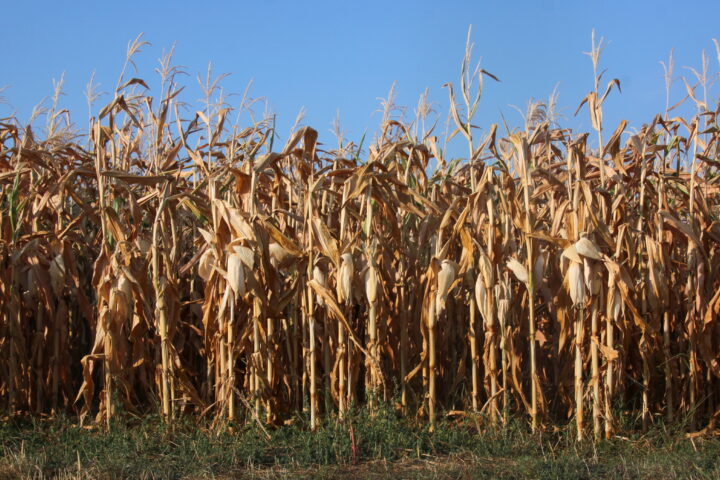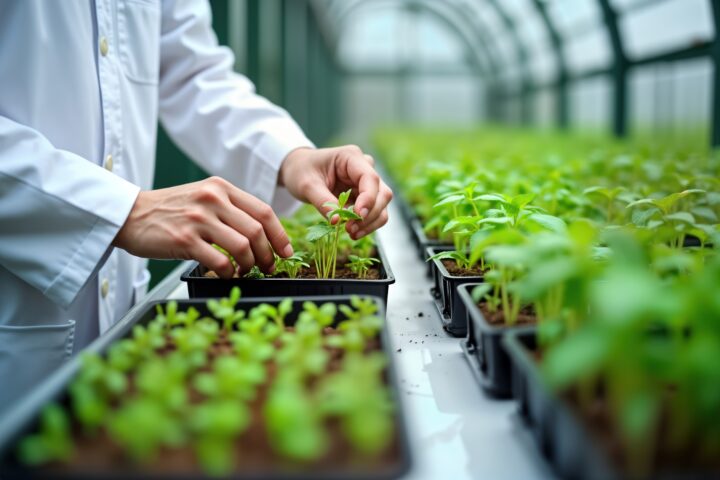
Is the climate-friendly cow on its way?
Cattle farming has long been criticised for its high CO₂ emissions — and especially for releasing methane. Scientists in California are now trying to tackle the problem with an innovative approach: using genome editing to alter the contents of the rumen, the first of a cow’s four stomachs. Their goal is to prevent methane from being produced in the first place.
Monday, September 2, 2024
Cattle are often singled out as a major source of greenhouse gases. Methane, in particular, is said to contribute roughly 30 times more to global warming than CO₂ over a 100-year period. Cattle alone account for nearly 5 percent of global CO₂-equivalent emissions.
Researchers have been working intensively for years to reduce methane emissions from livestock. According to The Washington Post, scientists from the University of California and the Innovative Genomics Institute are developing a groundbreaking method: genetically modifying the microbiome of a cow’s first stomach to make cattle more climate-friendly.
Using the CRISPR/Cas9 gene-editing tool, they aim to alter the microorganisms in the rumen so that less methane is produced. The idea is to create new microbes that deprive so-called archaea — the microorganisms that form methane — of the “food” they need before the gas can be generated. In this way, methane emissions could be reduced in the long term without changing the cows themselves.
Archaea feed on hydrogen (H₂) and carbon dioxide (CO₂) and convert these substances into methane (CH₄).
Methane innovation made in Valais
If the researchers succeed, billions of cows around the world could become more climate-friendly — without any change in diet. The Californian team is not alone in this effort. The Dutch company DSM has already developed a feed additive that can reduce cows’ methane emissions by 30 to 90 percent. The product is manufactured by a company based in the Swiss canton of Valais.
Due to Switzerland’s moratorium on genetic engineering, Swiss farmers cannot yet benefit from such innovations. A maize variety developed with new breeding technologies and proven to reduce cows’ methane output cannot be cultivated in Switzerland.
Alongside genome editing, the Californian researchers are also experimenting with natural additives such as algae oil, which can cut methane emissions by up to 80 percent. The oil blocks a key enzyme involved in methane production. This approach could help eliminate a significant share of global emissions and drastically reduce livestock’s impact on climate change.
However, feed additives have the drawback that they are less practical for animals that graze outdoors.
Despite promising research, the challenge remains immense. The cow’s microbiome has evolved over millions of years, making it difficult to bring about lasting change. Nevertheless, the scientists are optimistic that their work could lead to more sustainable farming practices.
This research highlights the vast potential of genome editing to address environmental challenges.
Kindly note:
We, a non-native editorial team value clear and faultless communication. At times we have to prioritize speed over perfection, utilizing tools, that are still learning.
We are deeply sorry for any observed stylistic or spelling errors.
Related articles

Cool thanks to Caribbean genes: the heat-defying calf!
Cows are also suffering from global warming. Hot temperatures have a negative effect on their metabolism. Now, the first solutions are emerging: for example, Strickhof in Lindau is home to one of the first Slick gene cows in the world. These are more heat tolerant than conventional cows and can therefore withstand global warming.

Stagnation instead of progress: Switzerland risks falling behind in new breeding techniques
An overview article in Schweizer Bauer shows how much the new breeding methods are preoccupying farming circles. Once the consultation process on the federal law has been completed, a bill is expected – then it will become clear whether there is actually the political will to approve it.

EU decision in favour of new breeding methods with stumbling blocks
On 7 February, the EU Parliament voted in favour of approving the new genomic breeding methods in the EU. MEPs voted in favour of a corresponding proposal by 307 votes to 263 with 41 abstentions. Further deliberations will now follow.

Stagnation instead of progress: Switzerland risks falling behind in new breeding techniques
An overview article in Schweizer Bauer shows how much the new breeding methods are preoccupying farming circles. Once the consultation process on the federal law has been completed, a bill is expected – then it will become clear whether there is actually the political will to approve it.

Biotechnology has only just begun
When Frank Schirrmacher cleared the pages of the Frankfurter Allgemeine Zeitung's arts section on 27 June 2000 to publish the human genome, which had just been deciphered for the first time, letter by letter over six pages, biotechnology came to the attention of the general public for the first time.

Genetic engineering? Yes, of course.
As a consumer, you often don't know: products advertised as GMO-free have long contained genetic engineering. This is a thorn in the side of opponents of genetic engineering. But it is easier to keep quiet about the ‘scandal’ – because something we have been eating for a long time no longer scares us.

Vegan alternatives thanks to genetic engineering
How can we feed a growing global population in a sustainable way? The answer increasingly lies in laboratories and genetic engineering. Whether it's lab-grown milk, vegan squid or farmed salmon – genetic engineering is everywhere. It's high time to dispel the old myths.

